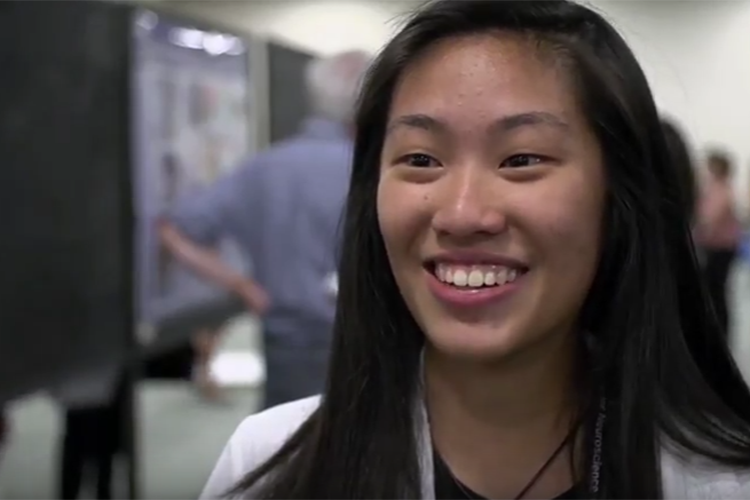
SfN Offers Training for Young Latin American Scientists
Because SfN strongly values the importance of global diversity and collaboration in neuroscience, the Society strives to support young scientists from around the world with resources and programs to aid in their professional development.
SfN's Latin American Training Programserves as a prime example of the Society’s efforts to grow the careers of young neuroscientists who will contribute to future discoveries in the field. LATP provides neuroscientists from Latin America and the Caribbean who are in the beginning stages of their careers with invaluable training and networking opportunities. The program is supported by The Grass Foundation, the International Brain Research Organization's Latin American Regional Committee and US/Canada Regional Committee, and selected host institutions.
For the program, 15 high-achieving young scientists are chosen to become fellows and take part in a three-week, in-person scientific training course. This year's course took place March 20-April 7 at the Universidad de Valle in Cali, Colombia. During the course, fellows attend classes with respected neuroscientists, participate in laboratory exercises, and receive training on professional development topics.
LATP offers participants face-to-face interaction with veteran scientists and peers that they might not otherwise have access to, providing an important opportunity to receive feedback on their work. “This program is extremely important because it gives Latin American students and postdocs the opportunity to share our research with other fellows and consolidated researchers,” said Dulce María Arzate Vázquez, a 2016 LATP fellow from the Universidad Nacional Autonoma de Mexico. “We gain access to discuss and learn directly from people who develop trending science, and the science we read from recent papers. Depending on what university or research institute you belong to, you have a good or null chance to sit face to face with a researcher you follow and admire. The LATP offers you this chance.”
In addition, the fellows receive stipends to attend SfN’s annual meeting, where they can participate in numerous educational sessions and networking events, including presenting their scientific poster in a special session with other international young scientists. The stipends are supported through a generous gift from Dr. John Simpson, an SfN emeritus member, and The Grass Foundation.
“I participated in Neuroscience 2016 in San Diego, and it was one of the best professional experiences I’ve had in my life,” said Giovanne Baroni Diniz, a 2016 LATP fellow from the Institute of Biomedical Sciences at the University of São Paulo in Brazil. “It is hard to even list all the amazing things that go on at the meeting: the sheer scale of the whole thing, meeting researchers from all over the world, meeting people in your field, getting in touch with cutting-edge works, watching the excellent symposia and lectures, probing manufacturers for the latest technologies, and so on. For 2017, there is an additional excitement that is meeting with my colleagues from the in-person training that will also be participating in the event.”
In addition to LATP fellows, all eligible program applicants — dubbed LATP associates — are given access to online professional development and networking activities that run throughout the program year. Content includes webinars, recorded content from the course, and online discussions, enabling all participants to learn about advances in science and to gain tools for professional development.
Luis Tume, an LATP associate from Universidad Peruana Cayetano Heredia in Lima, Peru, explained that he wanted to participate in the program “because it’s a unique opportunity to acquire new research skills applicable to our current research in the growing field of neuroscience.”
For more information on LATP, including a schedule of online associate events and how to apply for next year’s program, visit SfN.org/LATP.



















